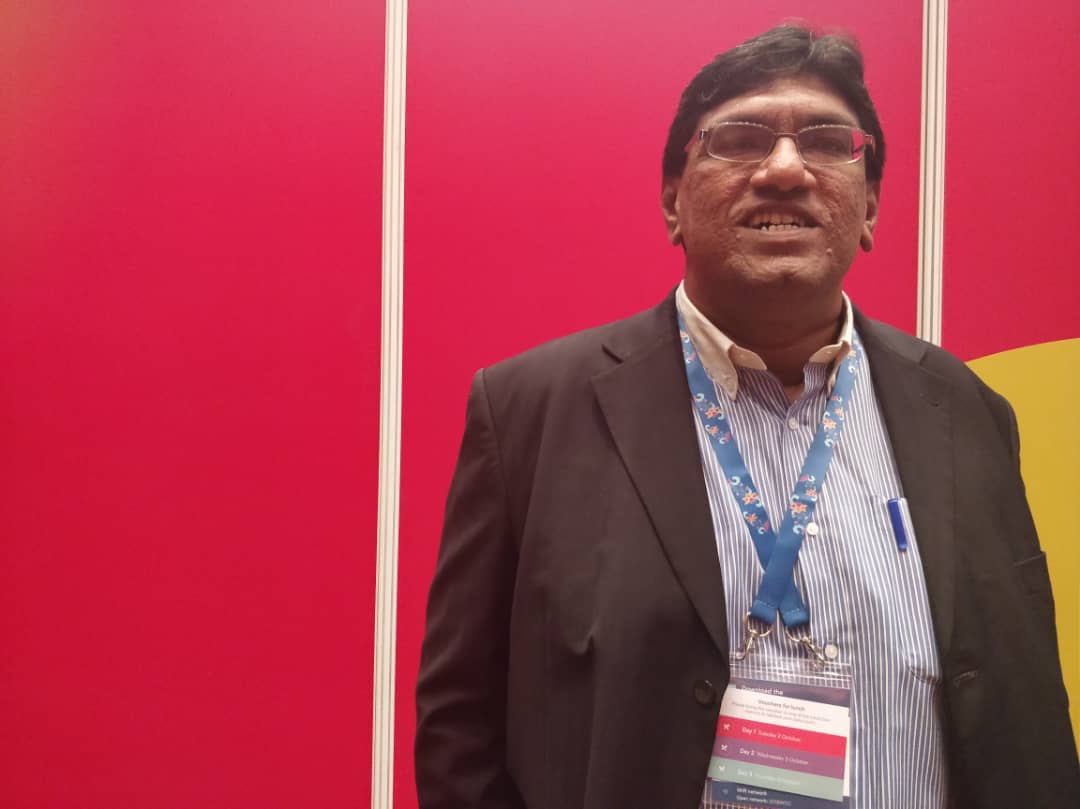KUALA LUMPUR, April 25 — Doctors have criticised the mySalam claims procedure as less than 0.2 percent of applicants received the government health scheme’s RM8,000 cash benefit to date.
National Cancer Society of Malaysia (NCSM) medical director Dr M. Murallitharan said the definitions of the 36 critical illnesses covered by the health scheme run by insurance company Great Eastern Takaful Berhad were too vague and discretionary.
He questioned the definition of “very early cancers” which are not covered, pointing out that various cancers had different terms for the progression of disease. Also, a stage 3 colorectal cancer, for example, could be less severe than a stage 2 aggressive breast cancer.
“Insurance — your default is to deny claims, until max max you can deny,” Dr Murallitharan told CodeBlue.
“So there will never be claims covered. You’ll get a lot of people whose claims are rejected. But even if they’re accepted, we won’t know if they pay RM3,000, RM5,000, or RM8,000. So we need to ask for a super detailed or super transparent list on what diagnoses are claimable.”
Deputy Finance Minister Amiruddin Hamzah reportedly told Dewan Rakyat earlier this month that only two out of the 97 approved mySalam claims received the RM8,000 one-time payment, while the other 95 received the hospitalisation benefit of RM50 per day for a maximum of 14 days per annum. The Finance Ministry had received 1,094 mySalam claims as of April 4.
mySalam chairman Johan Mahmood Merican recently admitted that the list of 36 critical illnesses covered under mySalam for the bottom 40 percent (B40) — including cancer, heart attack, and kidney failure — was based on industry standards.
Although B40 aged 18 to 55 who have any of the 36 illnesses are eligible for the RM50 hospitalisation benefit, those with pre-existing conditions, which means a diagnosis before January 1 this year, are excluded from receiving the RM8,000 lump sum.
Dr Murallitharan said that without specific terms of reference for the diseases covered by mySalam, doctors’ diagnosis would be written in very varied ways that could give excessive discretionary powers to those processing the claims, who are already predisposed to rejecting them.
He cited examples of diagnoses that could be written like “left breast cancer”, “left breast cancer stage 2B with HER2-positive or HER2-negative”, or “breast cancer stage 1A with involvement of don’t know what lymph nodes.”
“These fellows are going to play god.”
Junior Medicos At Insurance Companies
Dr Murallitharan said those who typically processed insurance claims were medical assistants, nurses, or “generic” graduates in fields like health sciences management who did not know a patient’s clinical condition and could only rely on a doctor’s diagnosis.
“There’s not going to be much payout because these people won’t be able to process claims,” he said. “That’s probably what is happening.”
The NCSM medical director also said the poor appeared to be ignorant about mySalam during his community roadshows across the country on cancer.
“I ask — ‘You all know about mySalam, new welfare programme?’ People are like — ‘What is this?’,” he said.
Former Malaysian Medical Association (MMA) president Dr Milton Lum said mySalam’s illness definitions could be “shot to bits”.
He cited for example the condition of “HIV infection due to blood transfusion”, as he described how difficult it was to prove that a blood transfusion caused an HIV infection.
Dr Lum told CodeBlue about a case he once handled, where a HIV-positive man had received blood from various hospitals that all claimed their blood supply was fine, even though an independent check revealed that one of their blood samples was tainted with the AIDS-causing virus.
“Could we say he got it from the HIV blood? This fellow was a drug addict. So how could you prove?”
The gynaecologist also said insurance companies had a “bad habit” of asking doctors when patients contracted a particular condition.
“Lady comes and sees me with a big ovarian cyst, or even a small ovarian cyst or fibroid. When did the person get it? No way I can tell you. I can only tell you, on this day, I made this diagnosis because the lady never saw me before,” said Dr Lum.
He also questioned what was the mechanism for appeal against the rejection of claims under mySalam.
“You shouldn’t administer it like a commercial insurance policy,” said Dr Lum.
“The basic question is — is it to provide financial assistance for all with medical conditions, however you want to define it, or is it to restrict? If it is to provide for all, as long as the person has a diagnosis, give it to the fellow, finish. Don’t make life difficult for people.”
Former Sungai Siput MP Dr Michael Jeyakumar Devaraj from Parti Sosialis Malaysia (PSM) said the approval of only two out of over 1,000 mySalam claims for the RM8,000 benefit would backfire on the Pakatan Harapan (PH) government.
“If the purpose of this is to help the B40 and to prove that the government is a caring government, this is not going to do it. It will create a lot of questions and ill feeling,” Dr Jeyakumar told CodeBlue.
“Two out of 1,000 isn’t very good. Nine hundred and ninety-eight people are going to go back and say it’s ‘tipu’.”








